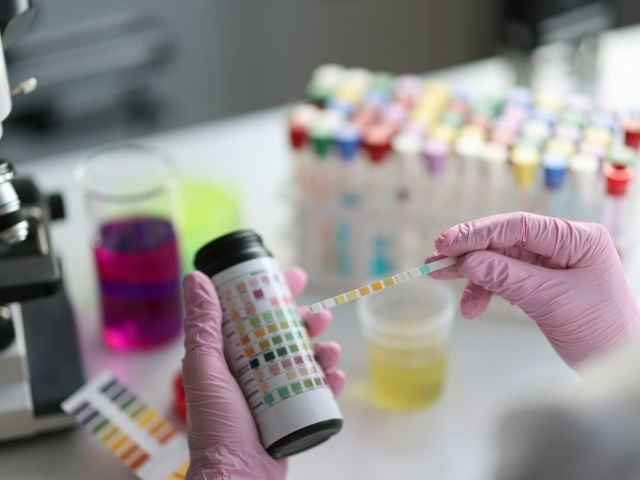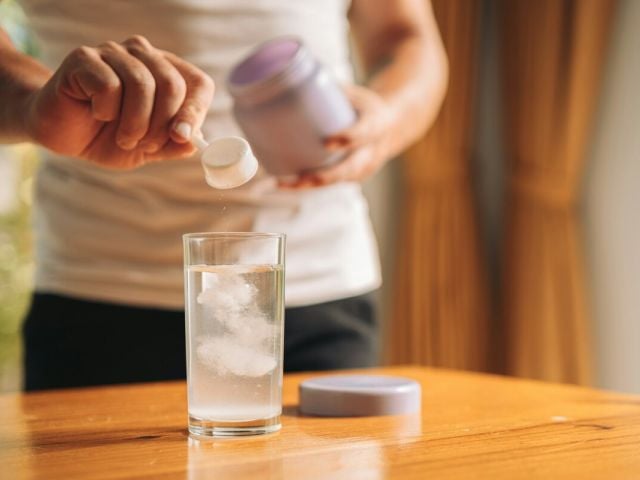
Pros and Cons of Taking Creatine Without Working Out
Most people think creatine is just for gym rats and athletes. That’s not the whole story.
This naturally occurring compound found in your muscles and brain does way more than boost workout performance. You might be surprised by what happens when you take creatine without working out at all.
Key Takeaways
- Even sedentary adults can maintain better muscle mass as they age with creatine supplementation
- Creatine improves memory, processing speed, and mental stamina by increasing brain energy by up to 15%
- Simple dosing of 3-5 grams daily with food works better than complicated loading phases and reduces side effects
- Decades of research show minimal risks for healthy people at normal doses, making it one of the safest supplements available
What is Creatine and Why Does It Matter?
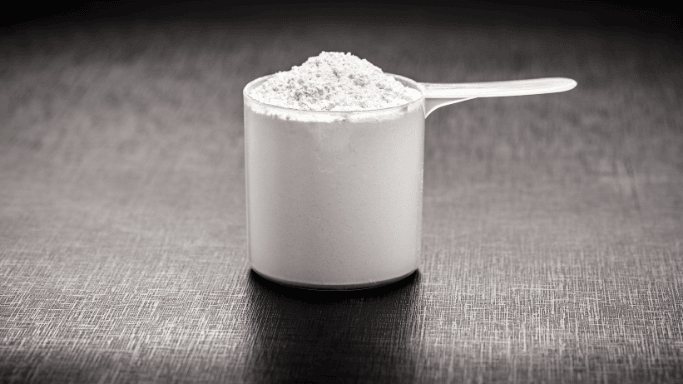
Creatine is a naturally occurring substance your body makes every day. Your liver and kidneys produce about 1 gram from amino acids you eat.
You also get creatine from meat and fish. But here’s the thing – most people only fill their creatine stores to about 70% capacity.
That’s where supplements come in.
When you take creatine, it travels through your bloodstream to high-energy tissues. About 95% ends up in your muscles. The rest goes to your brain and other organs.
Creatine plays a huge role in cellular energy. It gets converted to phosphocreatine, which acts like a backup generator for your cells.
Think of it this way. Your cells use ATP for energy. When ATP runs low, phosphocreatine steps in to recharge it instantly.
This system works whether you’re lifting weights or solving math problems.
Benefits of Creatine Without Exercise
Let’s bust a myth right away. You don’t need to hit the gym to benefit from creatine supplementation.
Your brain and body are constantly working. They can use the extra energy support.
Brain and Memory Benefits

Your brain is an energy hog. It uses about 20% of your daily calories despite being only 2% of your body weight.
That makes it vulnerable when energy runs short.
Studies suggest that creatine boosts brain creatine levels by up to 15%.1 Research shows this translates to real cognitive improvements.2
Memory gets the biggest boost. Multiple studies find improvements in working memory and short-term recall.3
Processing speed also increases. You might notice faster thinking and better focus during mentally demanding tasks.
The effects of creatine show up most when your brain is stressed. Sleep deprivation, high-pressure situations, and intense mental work all benefit from supplementation.
Some groups see bigger improvements:
- Vegetarians and vegans (lower baseline levels)
- People over 50 (declining brain energy)
- Anyone under high mental stress
Creatine’s role as a nootropic is gaining scientific recognition for good reason.
Muscle Preservation Benefits

Here’s something interesting. Creatine may help preserve muscle mass even without exercise.
Studies in older adults show that creatine supplementation alone can increase lean body mass.4 We’re talking about people who didn’t change their activity levels at all.
How does this work?
Creatine helps reduce muscle protein breakdown. It also promotes protein synthesis through something called cell swelling.
When creatine enters muscle cells, it pulls water in with it. This swelling sends growth signals to the muscle.
Your muscle’s stem cells also respond to creatine. These satellite cells help repair and maintain muscle tissue.
The supplement might even support bone health. Creatine appears to boost the activity of bone-building cells called osteoblasts.5
For older adults, this could mean less age-related muscle and bone loss.
Other Potential Benefits
Research hints at broader health effects from creatine use.
Blood sugar control might improve. Creatine appears to help muscles take up glucose more efficiently.6
The supplement also shows anti-inflammatory properties.7 This could help combat the chronic inflammation that drives aging.
Some studies even suggest cardiovascular benefits.8 But more research is needed here.
What Happens If You Take Creatine Without Working Out
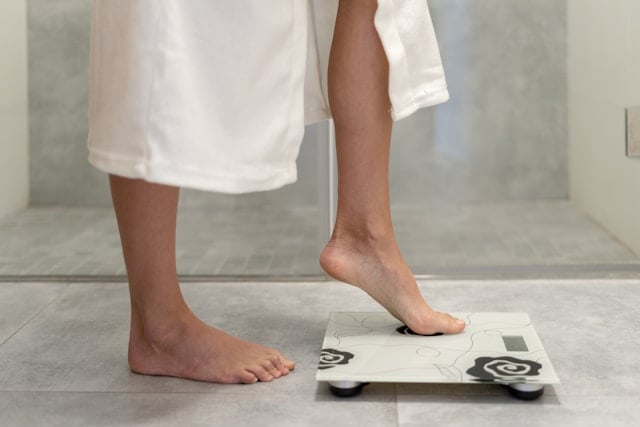
Let’s talk about what you can realistically expect.
Weight Gain from Creatine
You’ll probably gain 2-6 pounds in your first week. Don’t panic – this isn’t fat.
Creatine pulls water into your muscle cells. This is actually a good sign that the supplement is working.
The water weight serves a purpose. Cell swelling from increased hydration triggers muscle-building signals.
This happens even without exercise. Your muscles become more hydrated and potentially more resistant to breakdown.
| Week | What Happens | Why |
|---|---|---|
| 1 | Gain 2-6 lbs | Water moves into muscles |
| 2-3 | Weight stabilizes | Stores reach capacity |
| Ongoing | Maintain hydration | Steady cellular benefits |
The effects of taking creatine without exercise are subtle but measurable. You won’t suddenly get jacked. But your cells will function better.
How Your Body Processes Extra Creatine
Your creatine stores can only hold so much. Once they’re full, excess gets broken down and removed through urine.
This happens naturally and safely. Your kidneys handle the waste product (creatinine) just fine.
The whole process takes about 3-4 weeks to reach steady state with daily dosing.
Side Effects of Taking Creatine
Most people tolerate creatine well. But some issues can pop up.
Stomach problems are the main concern. About 10-15% of users experience bloating, cramps, or diarrhea.
These effects depend heavily on dose. Taking 10 grams at once increases diarrhea risk by 56%. Smaller doses rarely cause problems.
You can avoid most digestive issues by:
- Starting with 3-5 grams daily
- Taking it with food
- Splitting larger doses throughout the day
- Drinking plenty of water
Debunked Creatine Myths
Several scary stories about creatine don’t hold up to science.
Dehydration on creatine isn’t a serious risk. Creatine actually improves cellular hydration.9
Kidney damage doesn’t happen at normal doses. Numerous studies find no evidence of harm in healthy people.10
Creatine doesn’t cause acne. This myth probably comes from sweaty gym sessions, not the supplement itself.
These common creatine myths have been thoroughly debunked by research.
Is It Safe to Take Creatine Without Exercise?
The safety record for creatine is excellent. We’re talking about one of the most studied supplements ever.
Long-term studies lasting up to 5 years show no health problems in healthy adults.
The Kidney Question
Some people worry about kidney damage. This concern stems from elevated creatinine levels in blood tests.
Here’s what’s really happening. Creatine breaks down into creatinine naturally. More creatine in your system means more creatinine waste.
This elevation is harmless. It’s like having more exhaust from a bigger engine – totally normal.
Systematic reviews consistently find no kidney damage from creatine supplementation.11
One animal study did find problems in sedentary rats given massive doses. But exercised rats taking the same amount stayed healthy.
This suggests physical activity might provide some protection. For sedentary people, sticking to normal doses (3-5 grams) appears safest.
Who Should Be Careful
- People with existing kidney or liver disease should get medical clearance first.
- Anyone taking medications that affect these organs should also check with their doctor.
- Pregnant and breastfeeding women should avoid creatine due to limited safety data.
How to Use Creatine When Not Working Out
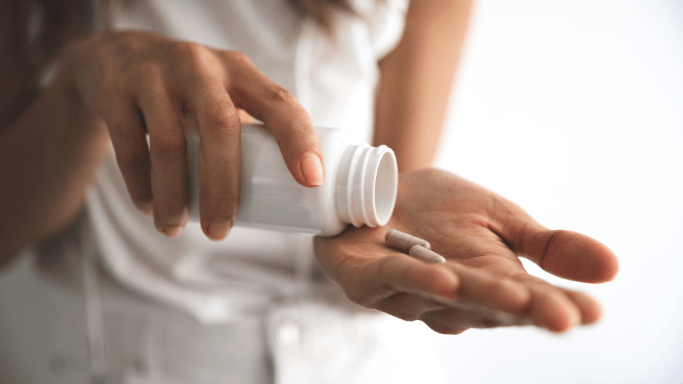
Getting the most benefit requires the right approach.
Choosing a Safe Creatine Supplement
Creatine monohydrate is your best bet. It’s the most studied form and usually the cheapest.
Despite fancy marketing claims, newer forms don’t work better than basic monohydrate.
Look for products that are:
- Third-party tested for purity
- Free from unnecessary additives
- Made by reputable companies
The amount of creatine you need stays simple:
- General health: 3-5 grams daily
- Cognitive support: 3-5 grams daily
- Older adults: 5-10 grams daily (with medical guidance)
Jinfiniti’s Creatine + ATP combines pure creatine monohydrate with disodium ATP for total cellular energy support.
Smart Dosing Without Working Out
Forget loading phases if you’re not exercising. Taking 20+ grams daily just increases side effect risk without meaningful benefits.
Start with 3-5 grams daily and stick with it. You’ll reach full saturation in about a month.
Proper creatine timing matters less than consistency when you’re not training.
Take it with food to improve absorption and reduce stomach upset.
Creatine Benefits Even Without Regular Workouts
The supplement works on a cellular level. Every tissue that uses energy can benefit.
Your brain gets consistent fuel for better mental performance. Your muscles maintain better hydration and potentially less breakdown.
Even light daily activities become easier. Walking, climbing stairs, and carrying groceries all use the energy systems creatine supports.
Pairing creatine with other cellular health strategies can amplify results. Jinfiniti’s Vitality↑® NAD+ Booster works through different pathways alongside creatine to support energy production.
Should You Consider Creatine Even Without Exercise?
The research makes a compelling case for sedentary creatine use.
Cognitive benefits alone justify supplementation for many people. Better memory, faster thinking, and reduced mental fatigue have real-world value.
The risk-reward ratio strongly favors trying it. Side effects are minimal and usually avoidable with proper dosing.
Older adults have even more reason to consider creatine. The potential for preserving muscle mass and bone density could impact quality of life significantly.
Cost is reasonable too. Quality creatine monohydrate costs less than most daily vitamins.
The Final Scoop
You don’t need to be an athlete to benefit from creatine. This naturally occurring compound supports cellular energy in all tissues.
Your brain will likely respond first with improved memory and mental stamina. Your muscles might maintain better hydration and resist age-related breakdown.
The main downside is temporary water weight gain. Most other supposed risks have been debunked by research.
Start simple with 3-5 grams of creatine monohydrate daily. Take it with food and give it a month to work.
Monitor how you feel mentally and physically. Many people notice the cognitive benefits before anything else.
Remember that adding any physical activity amplifies creatine’s effects. Even daily walks provide metabolic benefits that complement supplementation.
For people over 40, combining creatine with comprehensive health testing helps optimize the approach.
Talk to your doctor before starting if you have health conditions or take medications. But for most healthy adults, creatine offers a safe way to support cellular energy and brain function.
Referenced Sources:
- https://bmcmedicine.biomedcentral.com/articles/10.1186/s12916-023-03146-5 ↩︎
- https://www.jneurosci.org/content/35/4/1773 ↩︎
- https://academic.oup.com/nutritionreviews/article/81/4/416/6671817 ↩︎
- https://pubmed.ncbi.nlm.nih.gov/11880821/ ↩︎
- https://www.gssiweb.org/sports-science-exchange/article/creatine-supplementation-new-insights-and-perspectives-on-bone-and-brain-health ↩︎
- https://www.mdpi.com/2072-6643/13/2/570 ↩︎
- https://pmc.ncbi.nlm.nih.gov/articles/PMC8839648/ ↩︎
- https://www.sciencedirect.com/science/article/abs/pii/S2405457724002146 ↩︎
- https://www.mdpi.com/2072-6643/17/1/95 ↩︎
- https://link.springer.com/article/10.1007/s00726-011-0878-2 ↩︎
- https://pubmed.ncbi.nlm.nih.gov/31375416/ ↩︎

Get weekly health insights and exclusive offers by joining our newsletter.


